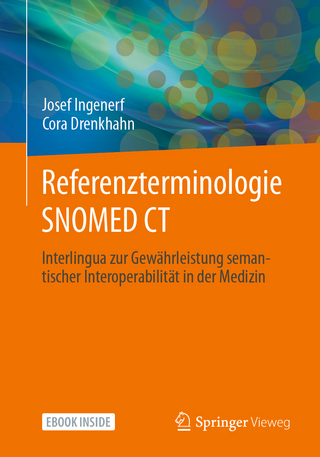
Probabilistic Numerics
Cambridge University Press (Verlag)
978-1-107-16344-7 (ISBN)
Probabilistic numerical computation formalises the connection between machine learning and applied mathematics. Numerical algorithms approximate intractable quantities from computable ones. They estimate integrals from evaluations of the integrand, or the path of a dynamical system described by differential equations from evaluations of the vector field. In other words, they infer a latent quantity from data. This book shows that it is thus formally possible to think of computational routines as learning machines, and to use the notion of Bayesian inference to build more flexible, efficient, or customised algorithms for computation. The text caters for Masters' and PhD students, as well as postgraduate researchers in artificial intelligence, computer science, statistics, and applied mathematics. Extensive background material is provided along with a wealth of figures, worked examples, and exercises (with solutions) to develop intuition.
Philipp Hennig holds the Chair for the Methods of Machine Learning at the University of Tübingen, and an adjunct position at the Max Planck Institute for Intelligent Systems. He has dedicated most of his career to the development of Probabilistic Numerical Methods. Hennig's research has been supported by Emmy Noether, Max Planck and ERC fellowships. He is a co-Director of the Research Program for the Theory, Algorithms and Computations of Learning Machines at the European Laboratory for Learning and Intelligent Systems (ELLIS). Michael A. Osborne is Professor of Machine Learning at the University of Oxford, and a co-Founder of Mind Foundry Ltd. His research has attracted £10.6M of research funding and has been cited over 15,000 times. He is very, very Bayesian. Hans P. Kersting is a postdoctoral researcher at INRIA and École Normale Supérieure in Paris, working in machine learning with expertise in Bayesian inference, dynamical systems, and optimisation.
Introduction; 1. Mathematical background; 2. Integration; 3. Linear algebra; 4. Local optimisation; 5. Global optimisation; 6. Solving ordinary differential equations; 7. The frontier; Solutions to exercises; References; Index.
| Erscheinungsdatum | 30.06.2022 |
|---|---|
| Verlagsort | Cambridge |
| Sprache | englisch |
| Maße | 208 x 260 mm |
| Gewicht | 1160 g |
| Themenwelt | Informatik ► Theorie / Studium ► Algorithmen |
| Mathematik / Informatik ► Mathematik ► Analysis | |
| ISBN-10 | 1-107-16344-7 / 1107163447 |
| ISBN-13 | 978-1-107-16344-7 / 9781107163447 |
| Zustand | Neuware |
| Haben Sie eine Frage zum Produkt? |
aus dem Bereich


